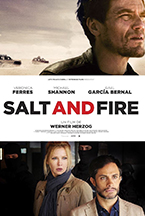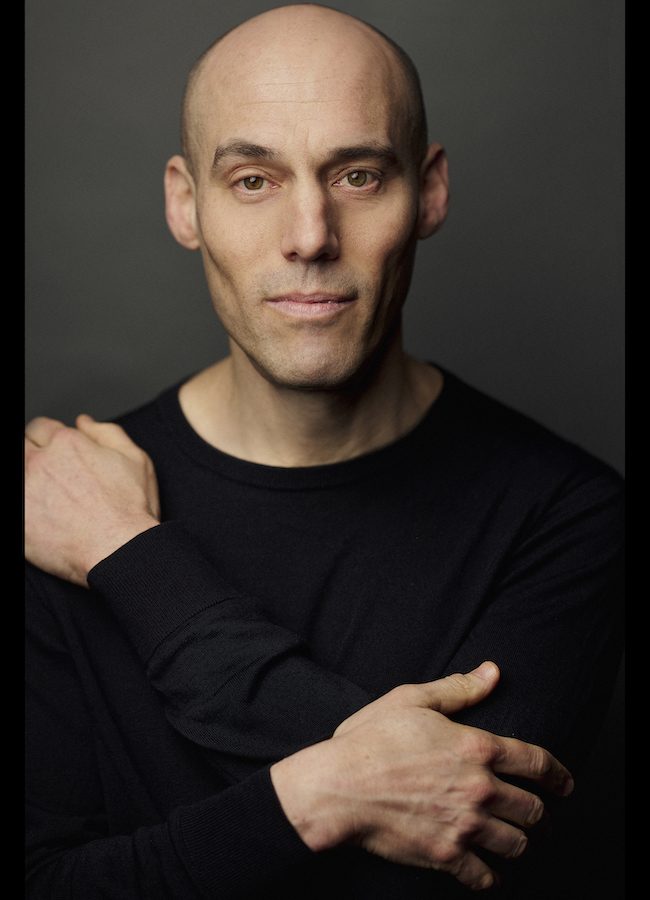
(Living Legend Werner Herzog is back in the dramatic narrative storytelling mode with Salt and Fire, available now in limed release and via VOD.)
Writer-director Werner Herzog’s Salt and Fire (adapted from Tom Bissell’s short story Aral) is as challenging and daunting as most of the German director’s feature films. The awkwardly stilted performances can be rather off-putting or comical, depending upon your perspective. Either way, the technique can be incredibly distracting, especially if you are in any way anticipating a traditional Hollywood hostage drama. However, this is Herzog, a director who strived to avoid Hollywood conventions at any cost – and there is a certain maniacal genius prevalent throughout Salt and Fire that can be engrossingly entertaining. The approach is not really all that unlike the auteurial directorial stylings of Douglas Sirk, Jean-Luc Godard, Rainer Werner Fassbinder, or Herzog himself. Salt and Fire is by no means intended to represent reality, it is a mechanism to convey an eco-political message, albeit a somewhat indecipherable one.
What is most fascinating about Salt and Fire is that Herzog adopts his signature documentary device into the fictional realm. It almost seems as if Herzog wished these events could have been captured in a documentary, one that he could narrate. But without turning the film into a fake documentary (perhaps with first-person footage), Herzog finds ways for his protagonist, Laura (Veronica Ferres), to narrate the events with the same philosophical flourishes and rhythmically poetic (yet undeniably German) delivery that we have come to expect from Herzog himself. In an odd sort of way, everyone in Salt and Fire rambles in oblique, hyper-intellectual tirades that perpetually channel the director’s manner of talking. Very few people speak like Herzog in real life; so, it is quite amusing to witness an entire cast of fictional characters who talk exactly like him.
To say that Salt and Fire is dense with philosophy would be an understatement. The question is, what on Earth does it all mean? Herzog seems to fixate on an echoing sentiment made by Michael Shannon’s Matt Riley (yet another vessel for Herzog’s philosophy). Essentially stating that scientists need to go beyond data and facts. They should take in account the touchy-feely aspects of research, such as human and animal intuition. Proof is not always found in cold, hard facts, sometimes it is discovered in feelings and personal experience, things that science does not usually account for. I like to think of Herzog’s narrative features the same way – on paper, they sound horrible, but there is an entertaining brilliance to be experienced. And I find it utterly sublime to listen to a bevy of actors (especially Michael Shannon) ramble incessantly in Herzog’s purple prose.
– Don Simpson (@thatdonsimpson)











